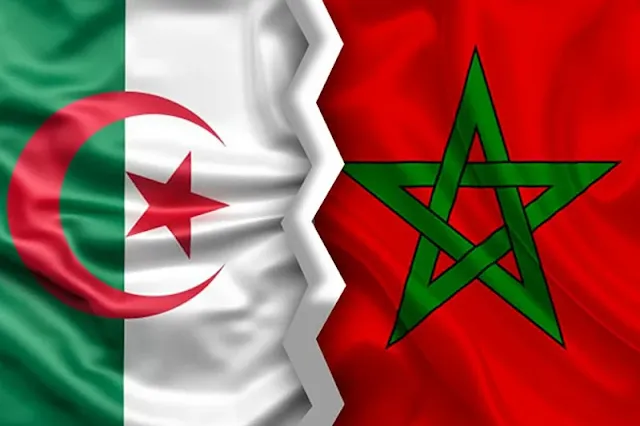The Persistent Presence of Over One Million Undocumented Moroccan Migrants in Algeria: A Complex Issue of Security Risks and Political Contradictions
Despite Algeria’s introduction of a visa requirement for Moroccan citizens in September of last year, estimates suggest that over one million undocumented Moroccan migrants remain in Algeria. This figure raises several critical questions: on the one hand, about the effectiveness of Algeria's migration policies, and on the other, about the security risks associated with this presence in the context of heightened tensions between the two Maghreb neighbors.
A Context of Diplomatic Tensions and Cognitive Warfare
Relations between Algeria and Morocco have deteriorated sharply in recent years, culminating in Algeria’s official severance of diplomatic ties with Morocco in 2021. Algeria has repeatedly accused Morocco of waging a “cognitive war” against it, through media propaganda and hostile actions, such as encouraging separatism in the Kabylie region and spearheading destabilization campaigns.
Adding to this tense climate, French journalist Georges Malbrunot recently revealed allegations about connections between the Israeli intelligence agency Mossad and members of the Moroccan community in France, who were reportedly used for espionage activities. While these claims mainly concern Europe, they also raise questions about the potential for similar infiltrations within Algeria. Against this backdrop, the significant presence of undocumented Moroccan migrants, who may be unchecked, feeds Algeria’s fears that external actors could exploit the situation for hostile purposes.
Security Challenges: A Strategic Concern
The issue of undocumented Moroccan migrants in Algeria is not merely about migration; it also involves significant security challenges. The porous borders between the two countries, particularly in the expansive desert regions of the southwest, are difficult to monitor and have become routes for human smuggling and unauthorized crossings.
The security risks are twofold:
- Potential Espionage and Intelligence Threats: The large number of Moroccan migrants may create vulnerabilities for intelligence operations, especially given the accusations of Moroccan collaboration with foreign intelligence agencies.
- Criminal and Extremist Activities: The same networks facilitating human smuggling could also enable the trafficking of arms or the movement of extremist elements, posing a direct threat to Algeria’s internal stability. These concerns are particularly acute as Algeria grapples with security issues in the Sahel region.
An Algerian Contradiction: Why Allow This Situation to Persist?
Despite these risks, a perplexing question remains: Why does Algeria appear to tolerate the continued presence of such a large number of undocumented Moroccan migrants? This situation seems contradictory to Algeria’s official stance toward Morocco, which it accuses of hostile actions and cognitive warfare. Several factors may explain this apparent contradiction:
Humanitarian and Social Considerations: Most undocumented Moroccan migrants work in informal sectors such as agriculture, construction, and commerce. A mass deportation would likely trigger a humanitarian crisis and could destabilize certain Algerian economic sectors that depend on this labor force.
Paradoxical Economic Impact: Although these migrants send billions of euros annually to support their families in Morocco—indirectly bolstering the Moroccan economy—they also contribute locally to Algeria’s economy through their labor in various sectors.
Logistical and Financial Constraints: Expelling over a million undocumented migrants would require substantial logistical and financial resources. Algeria’s capacities are already stretched thin by other priorities, such as securing its borders and combating terrorism.
An Implicit Strategy: Some analysts speculate that Algeria may be using the presence of these migrants to highlight Morocco’s failure to manage migration or as a potential bargaining chip in future political negotiations.
What Are Algeria’s Options?
Managing this situation requires a balanced approach that addresses both security imperatives and the economic and social realities linked to undocumented migration. Algeria could consider several measures:
- Strengthening Border Controls: Investing in advanced surveillance technologies and working with regional partners to better manage migration flows.
- Organizing Labor Markets: Implementing mechanisms to regularize or integrate Moroccan workers who contribute to the Algerian economy while cracking down on human smuggling networks.
- Diplomatic Engagement: Despite the strained political climate, limited dialogue with Morocco on migration issues could become necessary, particularly if it involves mitigating security risks.
Conclusion
The persistent presence of over one million undocumented Moroccan migrants in Algeria highlights a complex issue where security risks, political contradictions, and economic dynamics intersect. In the context of ongoing tensions between the two countries, Algeria must adopt a coherent strategy to safeguard its internal security while addressing the humanitarian and economic dimensions of this phenomenon. Without effective measures, this situation risks further fueling tensions between Algeria and Morocco and undermining regional stability as a whole.



Comments
Post a Comment